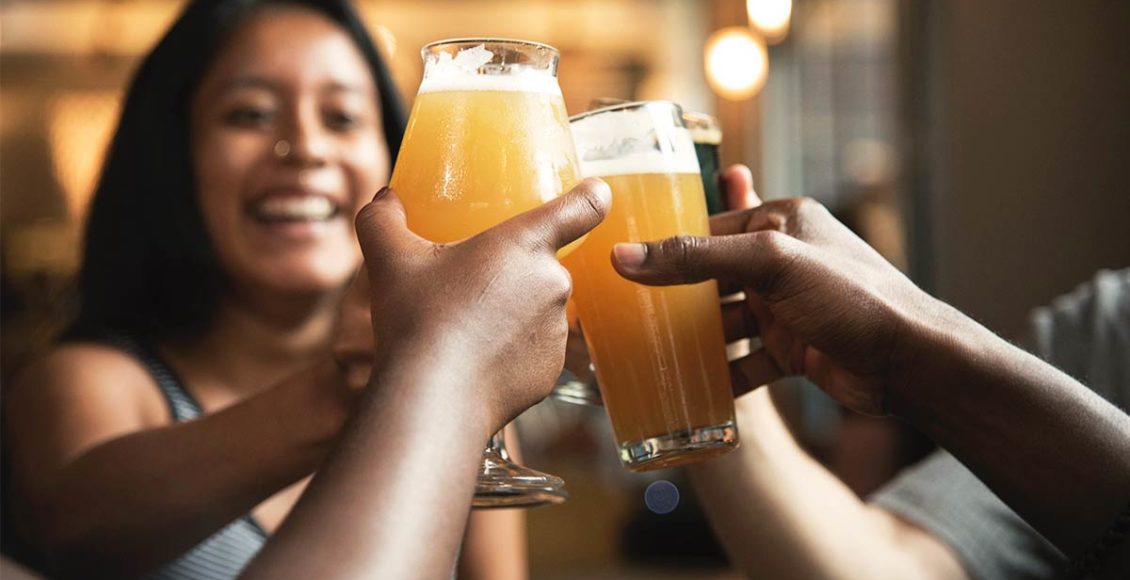Let us get the ball rolling with a couple of fun/interesting facts:
- As it appears, there are scientifical indications that a correlating factor between intelligence and the consumption of alcohol exists, as claimed by evolutionary psychologist Satoshi Kanazawa.
- As humans have begun to embark on the journey of “getting drunk” unknowingly from the fermentation of fruit, the actual production of alcohol has come later down the path after the advent of agriculture, making it an evolutionary novelty.
- Archaeological data reveals that beer and wine production has originated in Mesopotamia (at around 6,000 BC) and the development of spirits- in the Middle East or China (around 700 AD).
“Drinking alcohol is evolutionarily novel, so the Hypothesis would predict that more intelligent people drink more alcohol than less intelligent people.”
Thus, the Savanna-IQ Interaction Hypothesis (or the aforementioned “Hypothesis”) is explanatory of the suggestion that less intelligent individuals (in comparison to more intelligent ones) experience ‘greater difficulty‘ with adjusting to ‘evolutionarily novel entities’ and circumstances that were not in existence in the ‘ancestral environment’ (in this case, yes, the consumption of alcohol).
“Consistent with the prediction of the Hypothesis, more intelligent children, both in the United Kingdom and the United States, grow up to consume alcohol more frequently and in greater quantities than less intelligent children.”
Encompassing demographic variables such as sex, race, ethnicity, religion, marital status, socialization, number of recent sex partners, childhood social class and others, empirical evidence in both the US and the UK show intelligent people drink more in their adulthood years.
Moreover, it is of significance to state that categories of income and education, in combination with childhood class and parental education, are thoroughly analyzed in the research of both the UK and the US (discussed below).
“Very bright British children grow up to consume nearly eight-tenths of a standard deviation more alcohol than their “very dull” classmates.”
To sum up, the more intelligent the individuals are in their childhood, the more alcohol they indulge in as adults (in their 20s to 40s).
The research of Kanazawa, however, puts an emphasis on the fact that more intelligent people are in higher-paying jobs that most typically require socializing with associates. ‘It appears to be their intelligence itself, rather than correlates of intelligence, that inclines them to drink more.’
It does not predict that more intelligent individuals are more likely to engage in healthy and beneficial behavior. Instead, it predicts that more intelligent individuals are more likely to engage in evolutionarily novel behavior. Since the consumption of modern alcoholic beverages- including binge drinking and getting drunk – is evolutionarily novel, the Hypothesis would predict that more intelligent individuals are more likely to engage in it, and the empirical data from the UK and the US confirm it.
Nevertheless, intelligence may (as argued above) lead individuals to participate in ‘novel activities’, the discussed hypothesis does not state that those activities are consistent of a healthy substance (or beneficial behavior- such as binge drinking, for example).
Even though alcohol is considered to possess beneficial properties, those are definitely in moderate drinking.
Such are the following:
Benefits of different types of alcohol:
- The silicons in beer help protect the brain from the spreading of various compounds that lead to cognitive decline.
- Evidence from the research of Loyola University (Chicago) concluded that moderate drinkers are 23 percent less likely to suffer from Alzheimer’s.
- Moreover, champagne has been found to have the same effect. The reason behind this is that champagne contains a chemical that can put a stop to the part of the brain responsible for protecting memory from shrinking.
- Furthermore, phenolic acid has been connected to increased memory functions (studies have evaluated).
Moreover:
A group of researchers from Reading University tested the brain-improving advantages of champagne in (in the year of 2013).
The experiment consisted of the following: giving rats champagne on a daily basis for the span of six weeks, while finally challenging them to complete a maze. The test concluded that 50% of the rats who had not consumed champagne managed to successfully solve the maze, however, 70% of those who had drunk of the beverage accomplished the same goal.
To sum up, Kanazawa’s research conveys the point that the consumption of alcohol has an evolutionary background in which more intelligent people partake in. However, being an evolutionary novel does not mean it is considered a healthy or beneficial pattern. Having in mind other research mentioned above, moderate in contrast to excessive drinking has many health benefits that are interesting to look into.
So, drink with measure, people.



